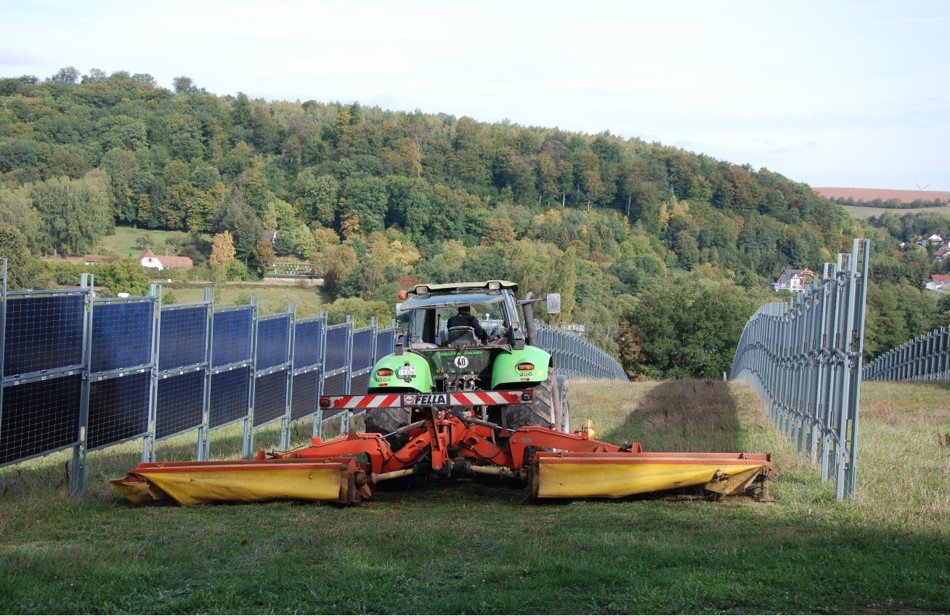| Duration: |
11/2022 - 10/2025 |
| Contracting Authority/ Sponsors: | Federal Ministry of Economic Affairs and Climate Action (BMWK) |
| Project Partners: | Assoziierte Partner: Next2Sun GmbH und TubeSolar AG |
| Project Focus: |
VAckerPower: Vertical agrivoltaics in arable farming
Technical Reliability of Operation, Potentials and Possible Ecological Benefits in Comparison to High Elevation Systems
The research project »VAckerPower: Technical reliability of operation, potentials and possible ecological benefits in comparison to high elevation systems« and the project »VAckerBio«, which is funded via the DBU, enable a comprehensive consideration of the vertical agri-PV approach in arable cultivation. In »VAckerPower«, high elevated and near-ground vertical Agri-PV systems as well as the use of different PV modules are investigated and evaluated in terms of their suitability for arable farming. For this purpose, analyses of performance, reliability of operation, ecological sustainability, land potential and social acceptance are conducted.
Agrivoltaic systems not only have to meet higher technical and structural requirements than ground-mounted PV systems (PV-FFA), but also have to fulfill crop management requirements in order to preserve land for crop production and exploit potential synergies. Unlike Pground mounted PV, light availability is key in Agri-PV systems. Challenges of previous highly elevated prototypes in arable farming have been heterogeneous shading and drip edges at the module edges. One way to address these challenges could be ground-mounted vertical Agri-PV systems (Category ll of DIN SPEC 91434) and modules adapted to agriculture. Europe's largest Agri-PV system is located in Donaueschingen-Aasen (Baden-Württemberg, Germany) and is a vertical system in arable land by the company Next2Sun GmbH. Due to the subsidies from the EEG innovation tender, it is expected that many more ground-based systems will follow in the coming years. However, there is a lack of conclusive data on their use in arable farming so far. At the same time, arable farming offers the largest area potential for agrivoltaics in Germany with 71 % of the agricultural area.
The key objective of the research project is to investigate and compare vertical systems with elevated systems (category l of DIN SPEC 91434) in order to analyze their practical suitability for arable farming. In addition, PV modules from different manufacturers will be evaluated using comparative tests. In cooperation of different research groups of Fraunhofer ISE, the companies Next2Sun GmbH and TubeSolar AG, the most pressing research questions for further development and optimization of agrivoltaic systems in arable farming are investigated and solutions are developed: The project team documents the electricity yield and conducts studies on accelerated aging due to agronomic environmental influences and on the operational reliability of the PV modules and the overall system. It is preparing life cycle assessments of the various module technologies and the vertical system design, and is developing holistic strategies for improving agri-PV technology in arable farming.
The project results should enable differentiated statements to be made about the use of various agri-PV systems in arable farming.
